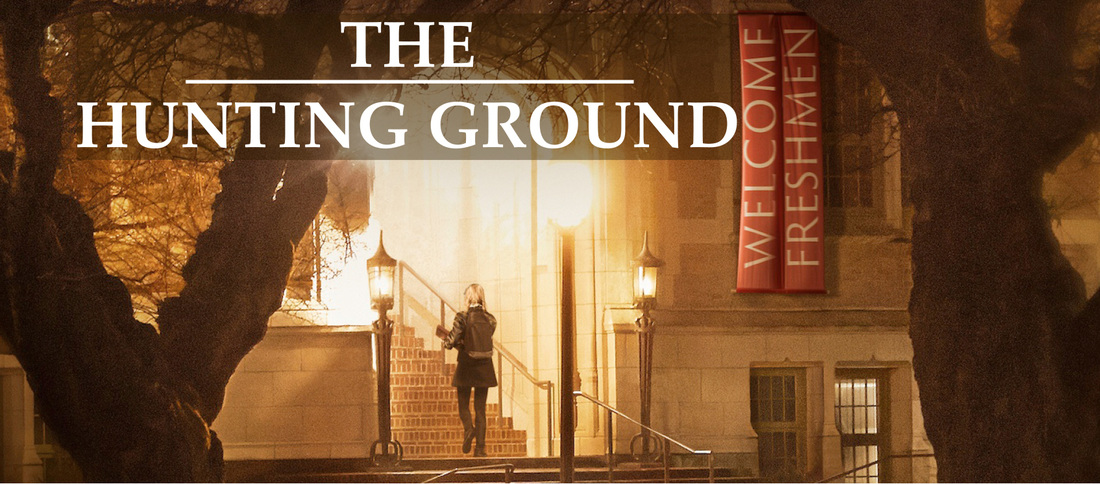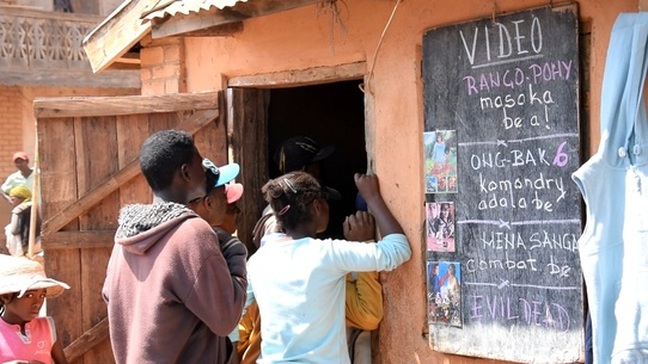Dylan Mohan Gray's powerful and important documentary about the business behind the global AIDS crisis.Tuesday 14 November 2017by BRENNAN BACKSFIRE IN THE BLOOD (Dylan Mohan Gray 2013, narrated by William Hurt) explores the faults in our society and the dominance money holds over the human race. In flashes, through the actions of a select view individuals, it holds out for hope yet this hope is quickly distinguished and replaced with more societal defects.
Gray expertly weaves personal, professional and activists stories in and around a narrative highlighting corruption and deceit in the pharmaceutical trade. Importantly, the documentary presents stories from across the world, painting a picture to show how the powers that be ruin lives. The documentary constantly reiterates the detrimental effect the pricing of life saving AIDS drugs had on impoverished countries. The AIDS epidemic is revealed as something that could have been handled more effectively and millions of lives could have been saved. Instead, the greed of the big corporations meant over 10 million Africans lost their lives to AIDS and countless more around the world needlessly died. While the documentary shows how impoverished countries fought back, bringing reasonably priced, life-saving AIDS medicine to the market, the intention is not to spin this into a positive story. It presents a cry for help, one that forces us to open our eyes and see the bigger picture. We live in a world where Zackie Achmat, a HIV activist and one of the documentary’s many interviewees, has exclaimed: “the only reason we are dying is because we are poor”. It is a shameful truth that this film highlights so eloquently.
0 Comments
JORDAN THOMASDebuting at Sundance in 2015 and eventually finding its way to an intimate White House screening, THE HUNTING GROUND (2015) is a controversial piece of cine-activism that provides an unabashedly harrowing insight into the reluctance of American colleges to acknowledge sexual assaults on campus. The documentary is led by civil rights duo Andrea Pino and Annie E Clark, as they embark on a social justice road trip across America providing support for sexually-assaulted college students while filing a detailed sexual discrimination complaint against their alma maters in their own cases.
Pino’s description of “vicarious trauma” poetically frames the film’s central drive, with every detailed description of rape creating waves of tear-inducing empathy for the victims, and anger towards the rapists, police and the universities. By including interviews from a variety of victims, college administrators and activists, as well as perpetrators, THE HUNTING GROUND presents a well researched, emotionally draining insight into the problems with prioritising college fraternities and sport stars over student safety. While the documentary has an undeniable sorrowful tone, with scenes of students standing up to institutions the audience are left with the hope that times are changing and that an ignorance of rape culture will soon be behind us. The Diegesis magazine sponsored screening of THE HUNTING GROUND took place on Thursday 10 November as part of Southampton Film Week 2016. VICKY SWAINOn Saturday 5 November, a documentary masterclass took place at Turner Sims as part of Southampton Film Week with an inspiring message for new filmmakers.
Director Cesar Paes and producer Marie-Clemence Paes engaged in a compelling discussion of their past documentary projects, including SONGS FOR MADAGASCAR (2016), the world premiere of which launched the ninth annual Southampton Film Week on Friday. The result was a vivid 30-year journey through the filmmakers’ careers to date. The focus on the power of sound to tell a story was a refreshing approach, evident throughout the clips that were screened to attendees. Their reasoning was in not wanting “a voice from above” but they instead followed the oral traditions associated with music to tell stories rather than simple narration. Two student documentaries – CUTTING EDGE and STRIPPED FOR CASH - were also screened in order to offer young filmmakers bespoke and insightful feedback from Cesar and Marie-Clemence. It was interesting to see how these filmmakers approached documentary filmmaking in very different styles at the start of their careers, which Cesar suggested was one of the benefits of being a young filmmaker. Perhaps the most inspiring advice was encapsulated in Cesar’s observation that “the film changes you as much as you change the film”. This was clearly a valuable lesson to learn from a great Southampton Film Week opportunity. Café Cineaste took place on Saturday 5 November as part of Southampton Film Week 2016. |
Archives
December 2019
Categories
All
|




 RSS Feed
RSS Feed
